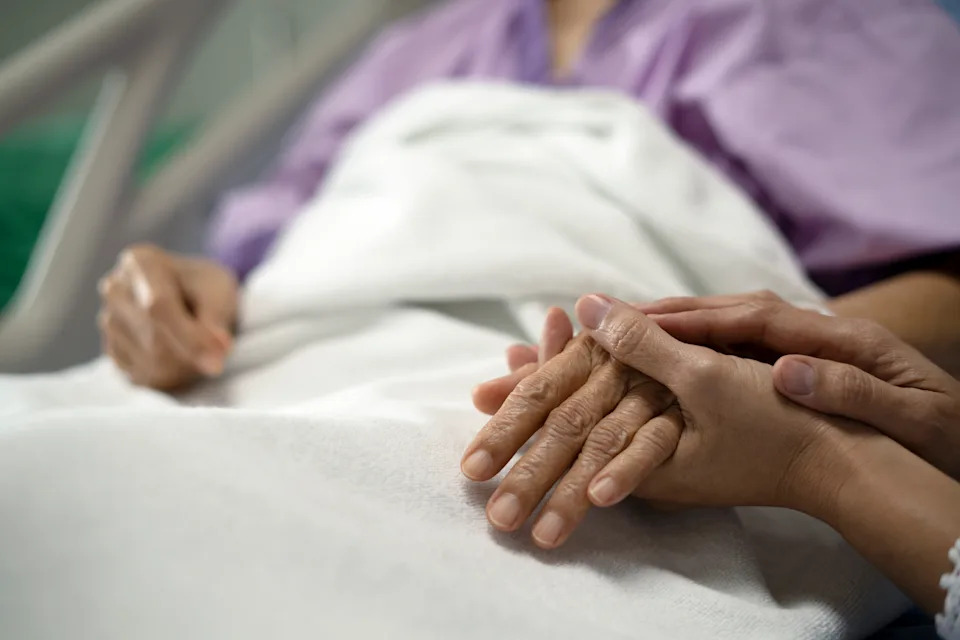Diane Keaton‘s cause of death has been revealed. According to her death certificate, which was obtained by People, the Annie Hall actress died from a bacterial pneumonia infection, which she developed days prior.
Keaton’s loved ones also shared her cause of death in a statement to the outlet. “The Keaton family are very grateful for the extraordinary messages of love and support they have received these past few days on behalf of their beloved Diane, who passed away from pneumonia on October 11,” the statement read.
Following her death, a friend of the Oscar-winning actress said her health “declined very suddenly.”
“It was so unexpected, especially for someone with such strength and spirit. … In her final months, she was surrounded only by her closest family, who chose to keep things very private,” the source added. “Even longtime friends weren’t fully aware of what was happening.”
The death certificate, which People published on Oct. 16, indicated Keaton had no other significant contributing conditions. It also noted that she was cremated on Oct. 14.
This article is for informational purposes only and is not a substitute for professional medical advice, diagnosis or treatment. Contact a qualified medical professional before engaging in any physical activity, or making any changes to your diet, medication or lifestyle.
But what exactly is pneumonia, and how does it become life-threatening? Read on to learn more.

The Oscar-winning actress died of pneumonia, according to her family. (Photo by Mario Anzuoni/Reuters)
What is pneumonia?
Pneumonia is the inflammation of one or both lungs, typically caused by an infection, according to the Canadian Lung Association. Infection causes the lung tissue to swell, which can lead to the accumulation of fluid or pus in the air sacs, preventing oxygen from reaching the bloodstream properly.
Many different germs can cause pneumonia, including bacteria, viruses and fungi. Bacterial pneumonia is usually more severe, whereas viral pneumonia often resolves on its own.
What are the symptoms of pneumonia?
The Cleveland Clinic noted that a person’s pneumonia symptoms may differ depending on the root cause of the infection. Viral pneumonia causes flu-like symptoms and typically resolves on its own, while bacterial pneumonia — which is more common — may require antibiotics or hospitalization.
Generally, some of the most common symptoms of pneumonia include:
Yellow-green phlegm (mucus)
Feeling very tired and unwell

Pneumonia might present like the common cold or the flu, but one symptom to watch for is a fever higher than 38.88 degrees Celsius (102 degrees Fahrenheit). (Photo via Getty Images)
How can I tell if I have pneumonia and not a cold or the flu?
Only a health-care provider can make an accurate diagnosis between pneumonia, the common cold and the flu. Pneumonia can be life-threatening, so it’s important to get medical help right away if you’re showing symptoms.
Some of the specific signs of pneumonia may include:
Fever of 38.88 degrees Celsius (102 degrees Fahrenheit) or higher
Coughing up mucus that’s yellow, green or bloody, or spit
Bluish skin, lips or nails (cyanosis)
Who’s most at risk of pneumonia?
Age is one factor that can raise your risk of pneumonia. People who are older than 65 and children under age two are most at risk for infections. According to the Cleveland Clinic, other people who are most at risk include:
Anyone living with a lung or heart condition, such as cystic fibrosis, asthma and COPD
Anyone in the hospital or at a long-term care facility
Anyone with a weakened immune system

On top of being older than 65 or under age two, people who are in the hospital or long-term care facilities are also at risk of getting pneumonia. (Photo via Getty Images)
How do I prevent getting pneumonia?
The best way to prevent pneumonia is by getting vaccinated against the bacteria and viruses that typically cause it, like COVID-19 and the flu.
People aged 65 or older may want to consider the pneumococcal vaccine. It’s recommended by federal health agencies, and can help protect oneself against that bacteria. Parents should also speak to their health-care provider about getting the vaccine for their younger children, as well as other childhood immunizations.
There are other lifestyle changes you can make that can also prevent pneumonia. These might include:
Quitting smoking and avoiding secondhand smoke
Washing your hands properly with soap and water before eating or preparing food
Avoiding close contact with people if either one of you has an infectious disease like the cold, flu or COVID-19
Avoiding excessive alcohol consumption
Eating a healthy diet, exercising and getting enough rest

Smoking can damage your lungs and make you more susceptible to pneumonia. (Photo via Getty Images)
How is pneumonia treated?
Pneumonia is treated based on its cause (bacterial, viral, or fungal), as well as the severity of the person’s case. The Cleveland Clinic added that causes can’t be determined in many cases, and treatment focuses on managing symptoms and preventing the patient’s condition from worsening.
Bacterial pneumonia will typically be treated with antibiotics. Other treatment options may include medications for other types of pneumonia, oxygen therapy, IV fluids to prevent dehydration and draining of fluids in the lungs.
Viral pneumonia often resolves on its own. However, it’s necessary to follow your health-care provider’s recommendations. Pneumonia can be life-threatening if left untreated, especially if you have an underlying health condition.
Is pneumonia deadly?
A study published in 2019 from the National Institute on Ageing noted that more than 6,000 Canadians die from pneumonia each year. Out of those, 87 per cent are people who are above the age of 65.
Statistics Canada’s latest data has also indicated that in 2022, more than 6,100 people died of influenza and pneumonia. Out of those, more than 5,400 — roughly 89 per cent — were people over the age of 65.
Let us know what you think by commenting below and tweeting @YahooStyleCA! Follow us on Twitter and Instagram.

